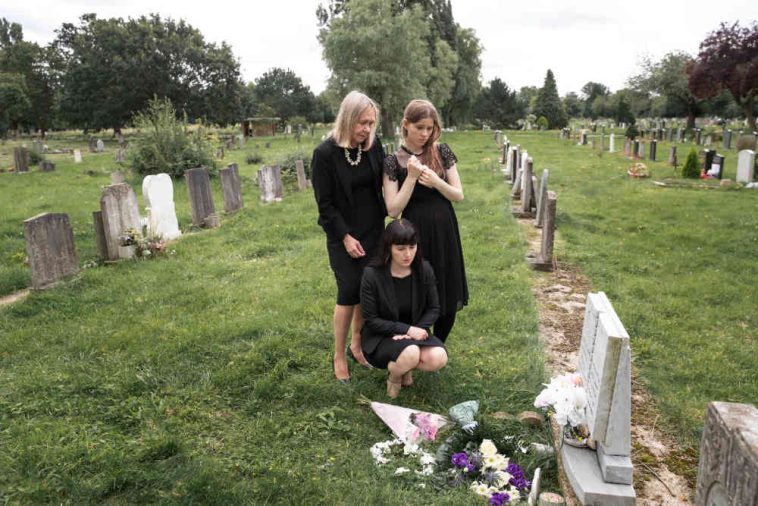Losing a loved one unexpectedly is one of life’s most challenging experiences. When that loss happens due to someone else’s negligence or misconduct, the emotional and financial burdens can feel overwhelming. You might be asking, “Where do I even start?” That’s where a wrongful death lawyer steps in, providing legal expertise, support, and a pathway to justice for your family. Let’s break down what a wrongful death lawyer can do for you and how they can make an incredibly difficult time a little easier to navigate.
Understanding Wrongful Death
Before we get into what a wrongful death lawyer does, let’s clarify what wrongful death means. When someone’s life is lost due to the reckless or negligent actions of another person, business, or entity, it’s considered wrongful death. This could be caused by a range of incidents, including car accidents, medical malpractice, defective products, workplace accidents, or even criminal behavior.
Wrongful death claims allow surviving family members to seek compensation for their losses. This isn’t just about money—it’s about accountability and ensuring that your family has the resources needed to move forward.
The Role of a Wrongful Death Lawyer
A wrongful death lawyer is more than just a legal professional. They act as your advocate, helping you understand your rights, navigate the legal system, and fight for the compensation your family deserves. Here’s a closer look at what they do:
1. Providing Clarity During Chaos
The period after losing a loved one can feel like a whirlwind of emotions, paperwork, and unanswered questions. A wrongful death lawyer takes the time to explain the legal process in simple terms so you’re never left wondering what’s next. They’ll help you determine if you have a valid claim, what it involves, and what kind of compensation you could pursue.
2. Investigating the Incident
One of the first steps a wrongful death lawyer takes is conducting a thorough investigation. They’ll gather evidence, interview witnesses, and work with experts to build a strong case. This isn’t something most families can handle on their own, especially while grieving. Having someone dedicated to uncovering the truth can be a huge relief.
3. Filing and Managing Your Claim
Navigating legal procedures can be overwhelming, especially if you’re unfamiliar with how the system works. A wrongful death lawyer handles all the paperwork, deadlines, and filings, ensuring everything is done correctly and on time. This eliminates the stress of legal technicalities so you can focus on your family.
4. Negotiating for Fair Compensation
Wrongful death claims often involve insurance companies or large corporations that will try to minimize payouts. Your lawyer acts as a buffer, negotiating aggressively on your behalf to secure the compensation you’re entitled to. This could include damages for medical expenses, funeral costs, lost income, pain and suffering, and loss of companionship.
5. Representing You in Court, if Needed
While many wrongful death claims are settled out of court, some cases require litigation. If this happens, your lawyer will represent you, presenting evidence and making arguments to ensure your family’s voice is heard. This level of expertise is crucial when facing a legal battle.
Why Hiring a Wrongful Death Lawyer Matters
You might wonder, “Can’t I handle this myself?” Technically, yes, but wrongful death cases are complex, and the stakes are high. Here’s why having a lawyer is invaluable:
- Legal Expertise – They understand the laws surrounding wrongful death, which vary by state, and know how to build a solid case.
- Time and Resources – Investigating, filing, and negotiating take time and expertise that most families don’t have while grieving.
- Objective Perspective – Emotions run high after a loss. A lawyer provides a clear, level-headed approach to pursuing justice.
- Maximized Compensation – Lawyers know how to identify all potential damages and fight for the maximum amount you’re owed.
What to Look for in a Wrongful Death Lawyer
Choosing the right lawyer is an important decision. Here are some key factors to consider:
- Experience – Look for someone with a strong track record in wrongful death cases.
- Compassion – You need someone who understands the emotional toll you’re facing and can handle your case with sensitivity.
- Communication – A good lawyer keeps you informed and makes sure your questions are answered every step of the way.
- Reputation – Check reviews or ask for recommendations to find a lawyer known for their professionalism and success.
How a Wrongful Death Lawyer Supports Healing
The financial support a wrongful death lawyer can help secure isn’t just about covering bills. It provides your family with stability and peace of mind, knowing that you can move forward without added financial strain. Equally important, holding the responsible party accountable can bring a sense of justice and closure that’s essential for healing.
Working with a compassionate lawyer can also alleviate the emotional burden. They take on the stress of legal matters so you can focus on remembering your loved one and supporting your family.
Taking the First Step
If you’re unsure about whether you have a case or where to begin, most wrongful death lawyers offer free consultations. This is your chance to ask questions, share your story, and understand what’s possible. The sooner you start, the better your chances of building a strong case.
Moving Forward Together
Losing a loved one is never easy, but you don’t have to face this journey alone. A wrongful death lawyer can be a powerful ally, guiding you through the legal process, fighting for justice, and helping your family find a sense of closure. With their expertise and support, you can focus on honoring your loved one’s memory and rebuilding your future.
Taking that first step may feel overwhelming, but it’s also a step toward answers, accountability, and healing for your family.





